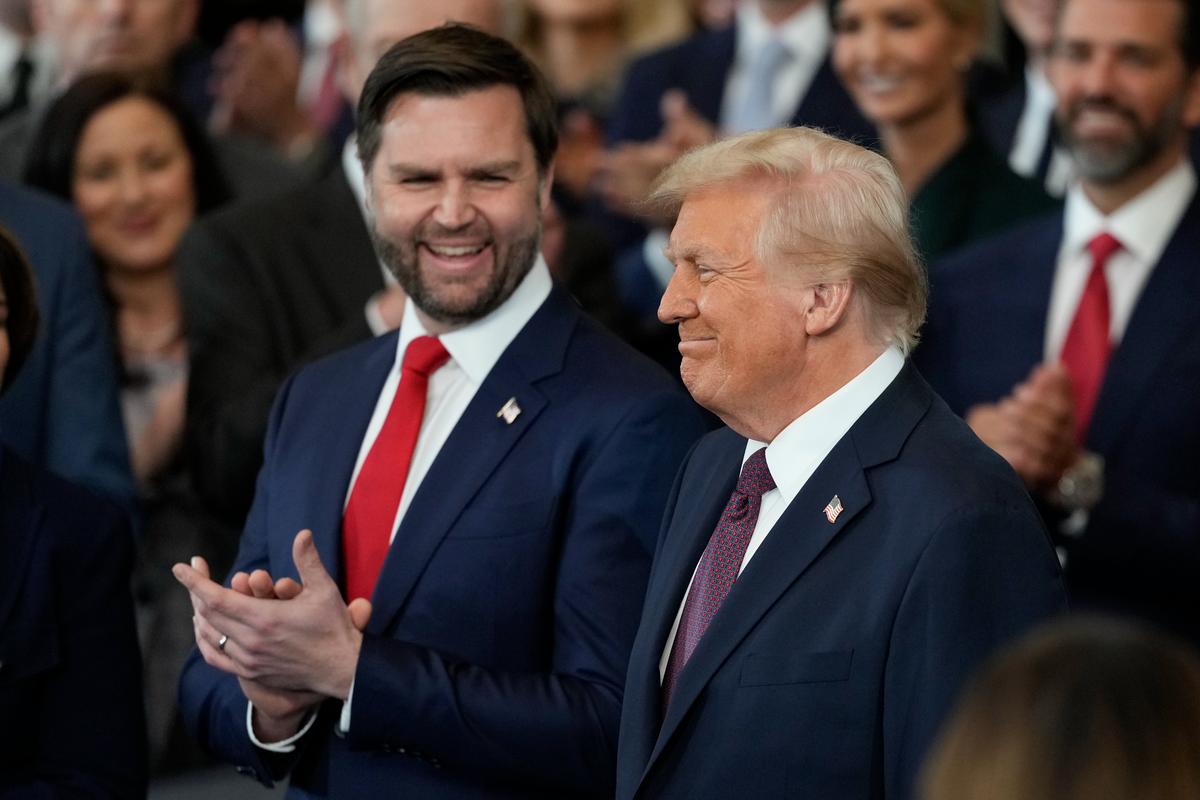
US President Donald Trump and US Vice President JD Vance during the inauguration ceremony in Washington, DC, 20 January 2025. Photo: EPA-EFE / JULIA DEMAREE NIKHINSON / POOL
Donald Trump has taken the oath of office to become the 47th president of the United States in a ceremony held in the US Capitol’s Rotunda on Monday due to abnormally cold weather conditions in Washington.
Trump, who had no transition team in place nor any of his senior staff picks made when he unexpectedly won the presidency for the first time in 2016, has promised to hit the ground running for his second term in the White House, and has repeatedly pledged to issue a flurry of executive orders on his first day back in the job as he begins working down a long list of anti-immigrant, America-first policies.
Ending the war in Ukraine as quickly as possible was one of Trump’s key campaign pledges, though he has given himself a more realistic timeline of six months to end the war in recent speeches, having repeatedly claimed to be able to end the conflict within 24 hours of taking office while on the campaign trail.
However, for Ukrainians, any hopes that Trump could bring a swift resolution to the almost three-year war have been overshadowed by fears of the concessions Kyiv would be expected to make in any Trump-sanctioned peace deal with Russia. Most analysts believe Trump favours a peace deal in which Ukraine agrees to cede territory currently occupied by Russian forces to Moscow, or approximately 20% of sovereign Ukrainian territory.
Vladimir Putin preemptively congratulated Donald Trump on his return to the White House during a meeting of the Russian Security Council on Monday, several hours before Trump’s inauguration took place.
In a video published by the Kremlin, Putin welcomed comments made by Trump and his team “about their readiness to resume direct contacts with Russia”, which he said had been broken off by the Biden administration “through no fault” of Moscow.
In particular, Putin said that Russia was “open to dialogue” with the US administration on Ukraine, stressing the importance of addressing “the root causes of the crisis”, which he said Moscow had spelled out “many times”, likely referring to Moscow’s demands that Ukraine drastically cut back ties with NATO and become a neutral state as a prerequisite for any peace deal.
